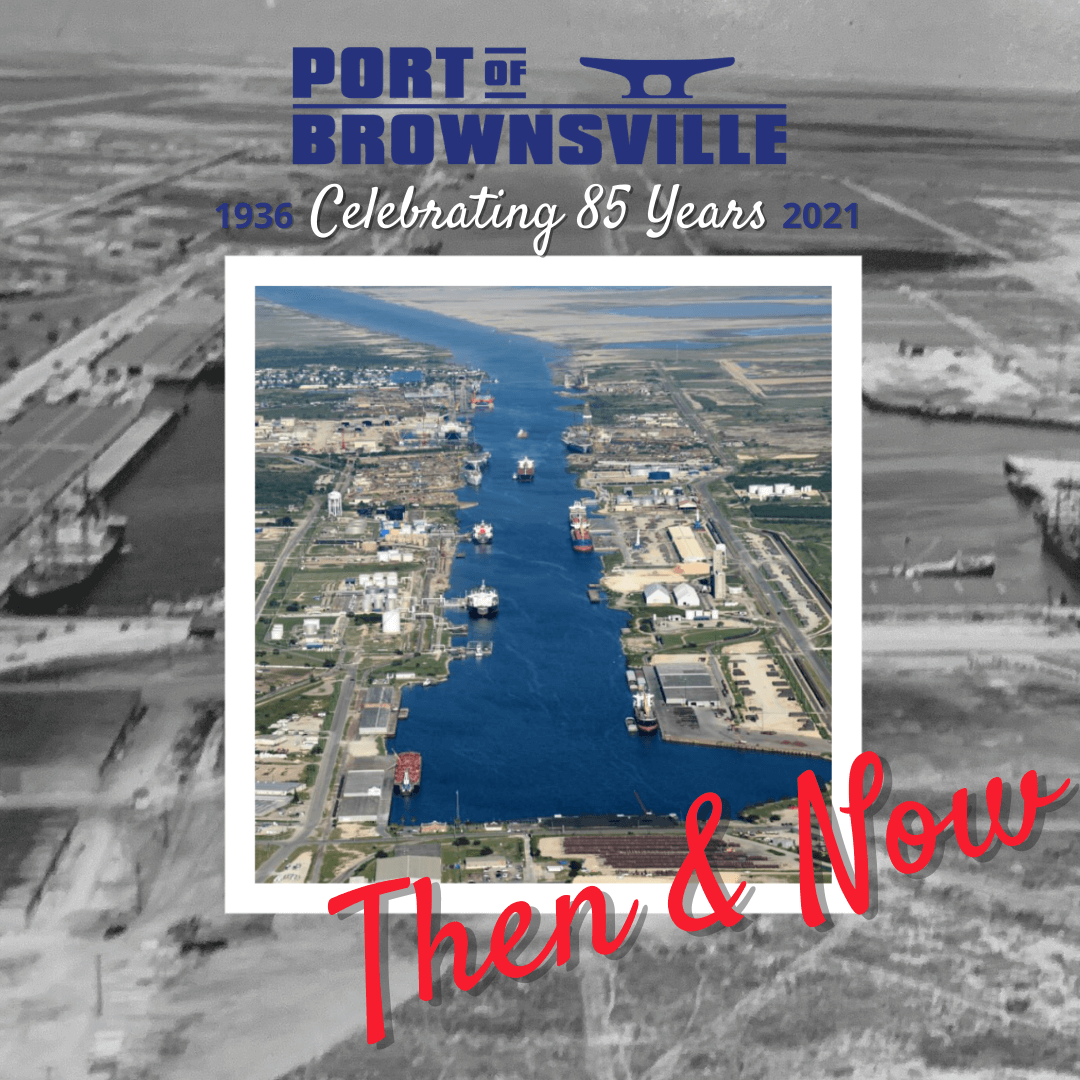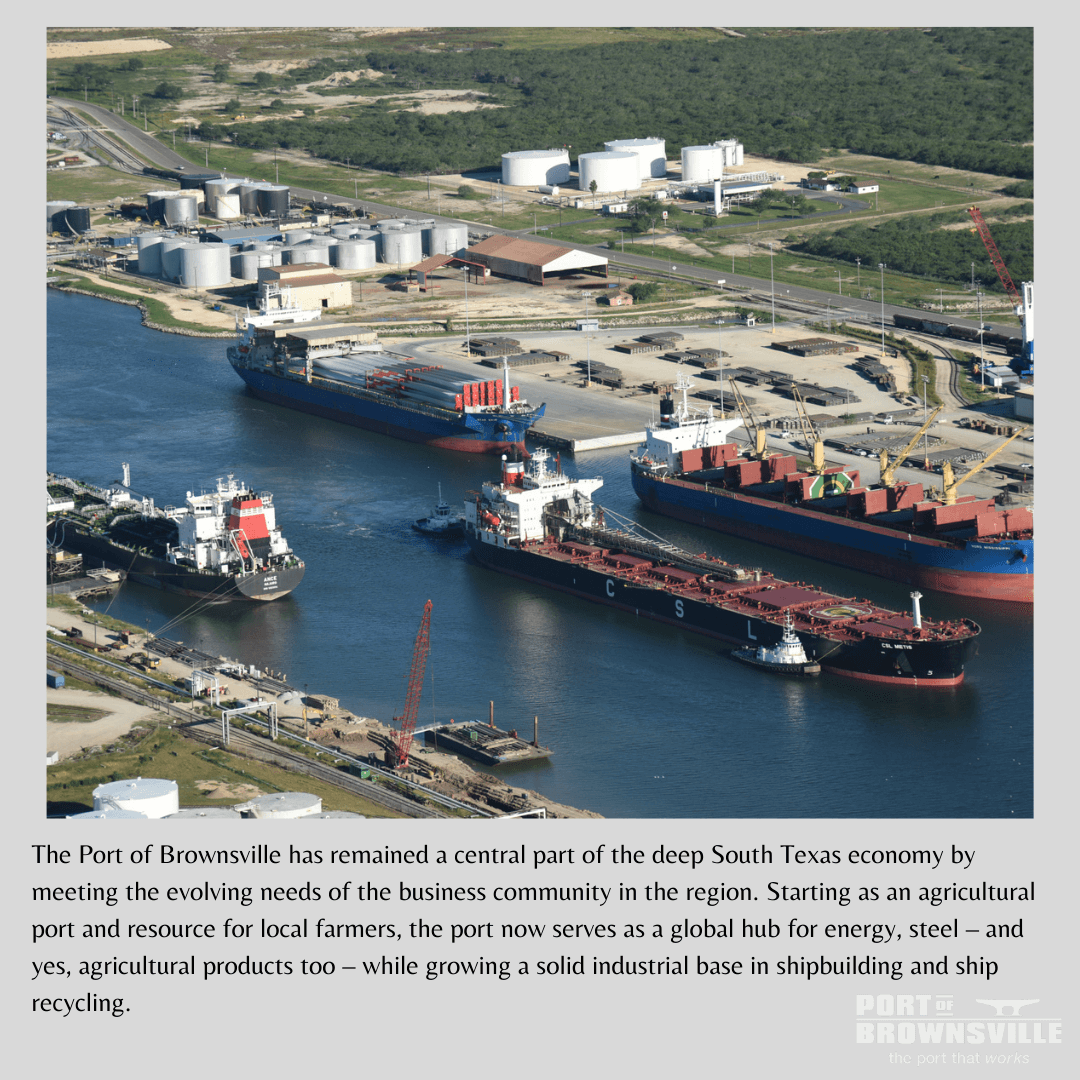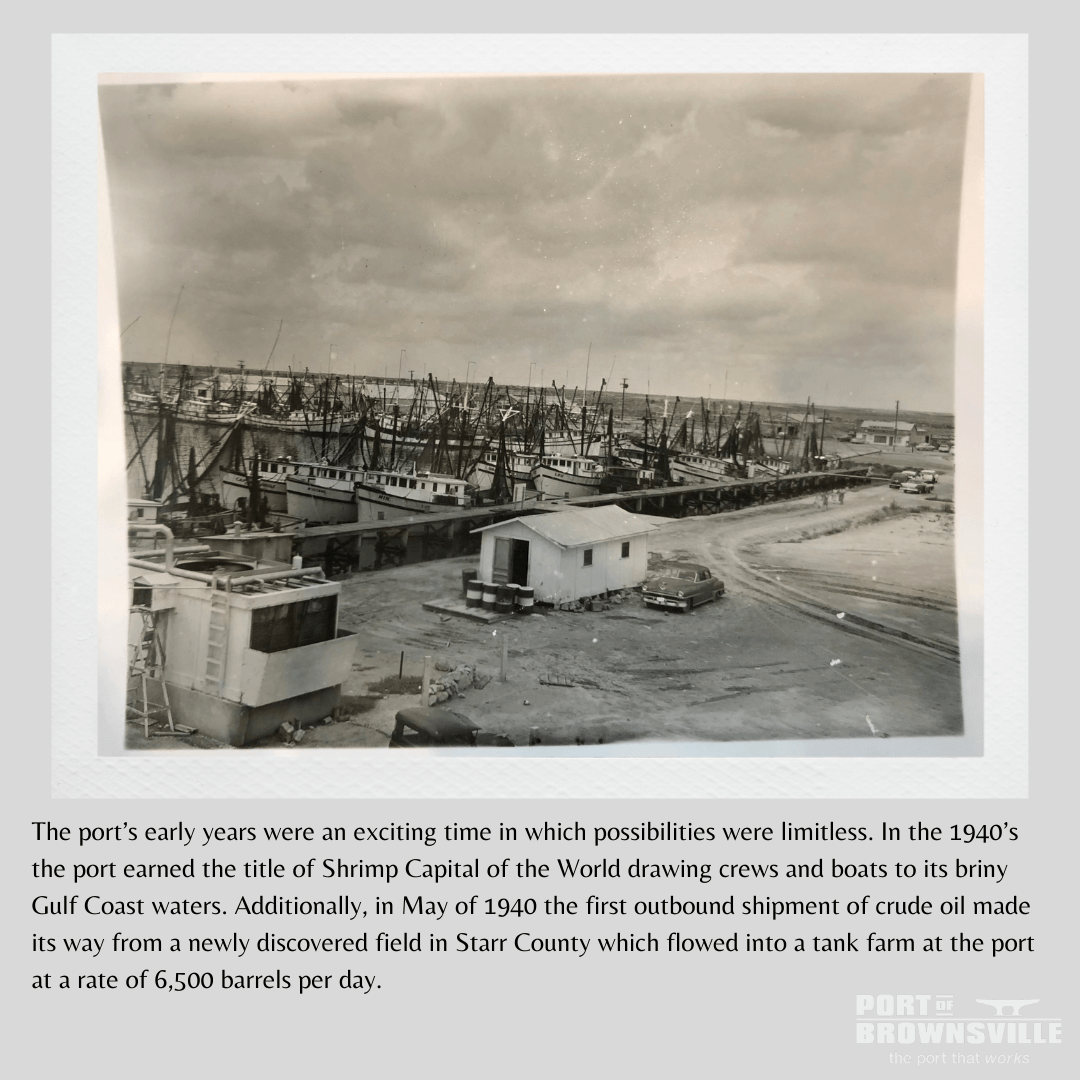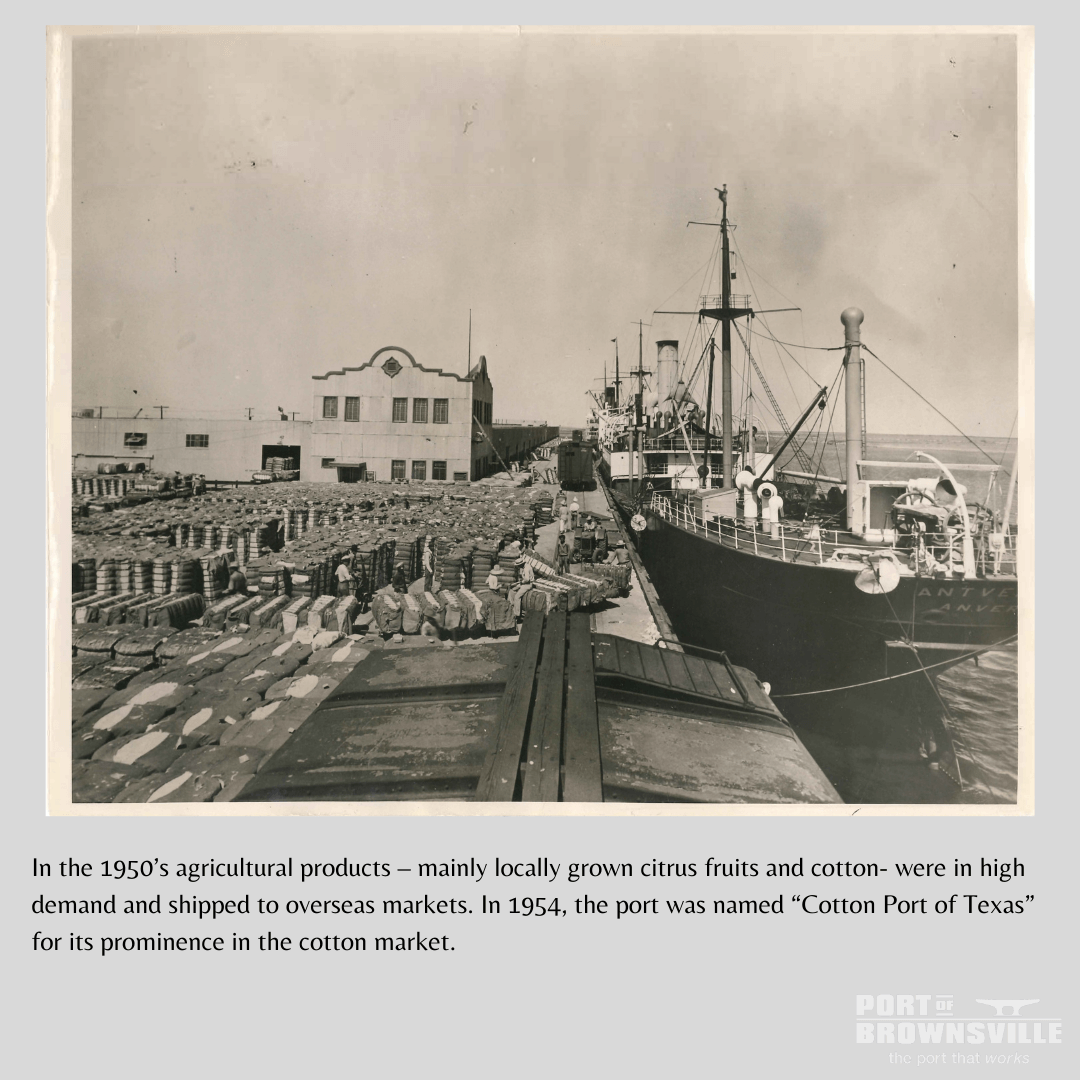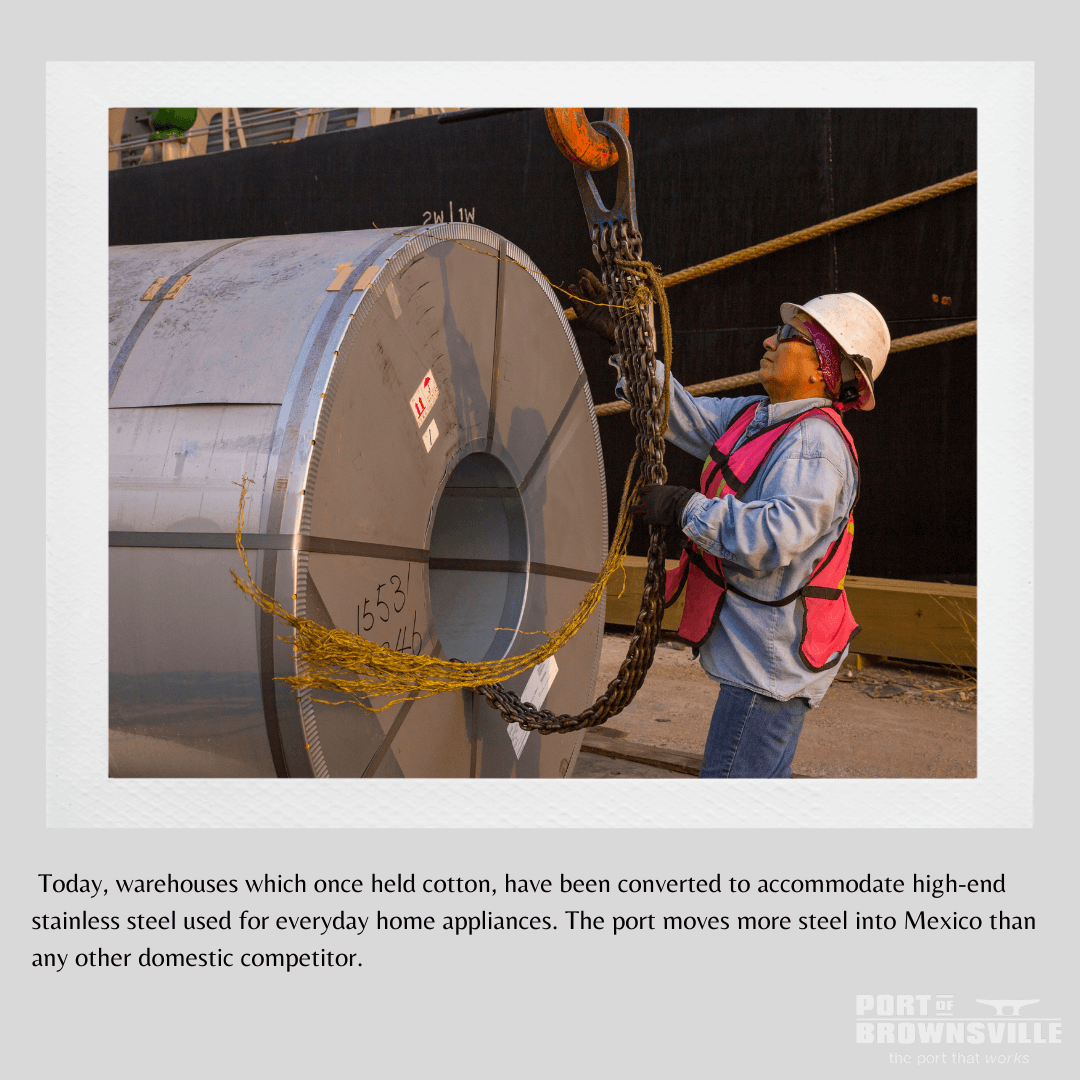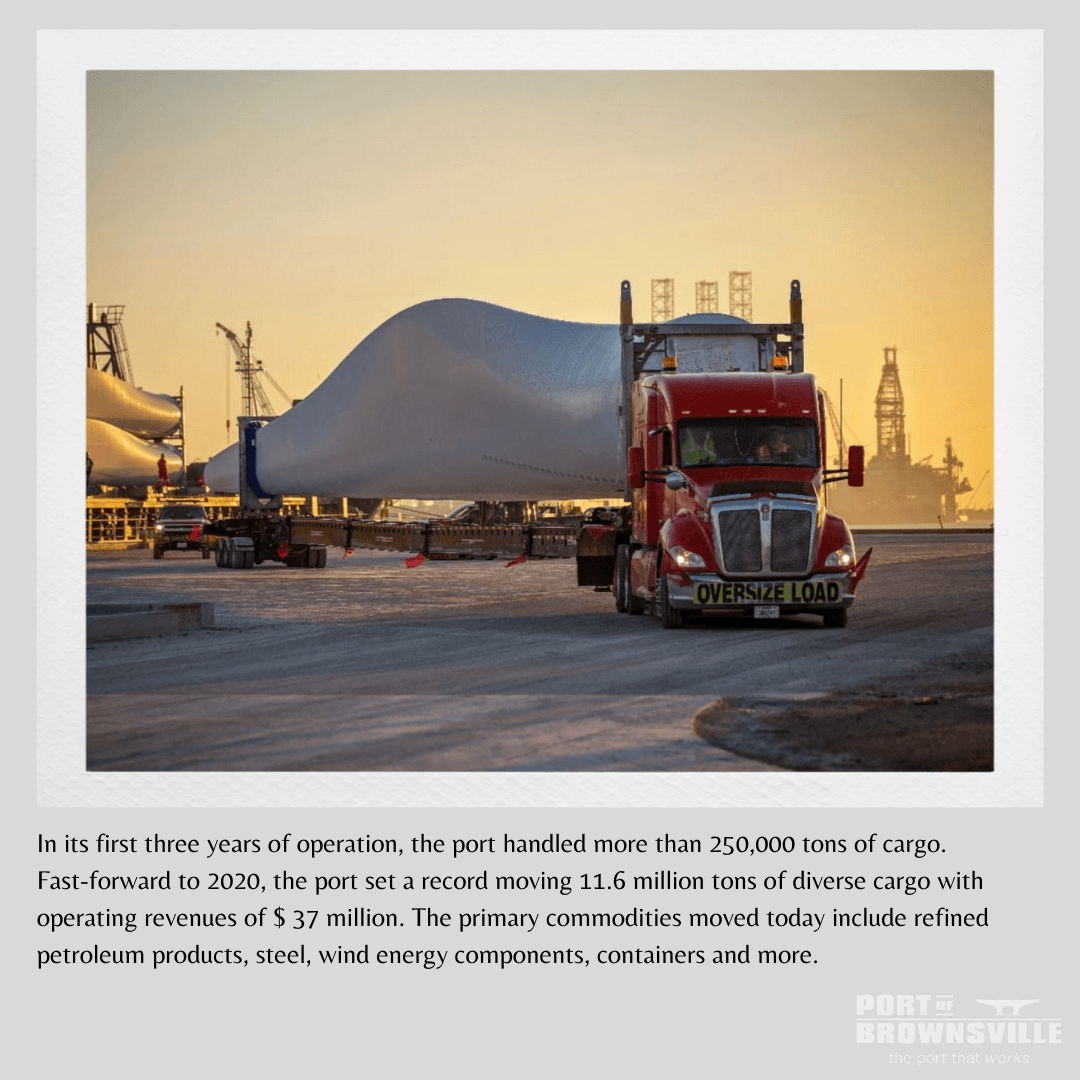As the only deepwater seaport located directly on the U.S.-Mexico border, the Port of Brownsville is strategically positioned to efficiently serve and connect industries across North America and beyond.
The port is a prominent shipper of steel, refined petroleum products, grain, aggregates, among other products supporting diverse industries located in 12 Mexican states.
The movement of cargo across the border in both directions is made easy thanks to the port’s direct connectivity to USMCA interstate corridors, offering a fast route to non-congested international bridge crossings. The Port of Brownsville claims conceptual ownership of Texas’ first overweight corridor. Trucks crossing the border in either direction utilizing the specially designated route to or from the port, can load to the legal weight limits of Mexico – 125,000 pounds (45,000 pounds heavier than domestic limits). That translates into real savings in both time, money, and logistical efficiencies.
Convenient and efficient commercial border crossings are located just seven miles from the port by truck or about 13 miles by railroad at the West Rail Bridge. Class 1 rail service to and from the port to Mexico and all of North America includes Canadian Pacific Kansas City for operations south of the border, and with Union Pacific and BNSF Railway serving northern routes. On-port rail service is provided by agreement with OmniTRAX, operating the Brownsville Rio Grande International Railway on more than 45 miles of port-owned railroad.
The port’s strategic location makes it an attractive place for manufacturing centers in Northeastern Mexico, primarily in the Monterrey, Mexico, area. This logistical advantage has catapulted the Port of Brownsville as the major gateway for steel into Mexico, moving a record 4.6 million tons of steel commodities in 2022.
Steel exports to Mexico are projected to increase to 5.5 million tons in 2023, thanks to the development and expansion of Ternium’s industrial Center located in Pesquería, right outside the Monterrey metropolitan area. The company is utilizing the Port of Brownsville for receiving, staging, and shipping all the steel slab processed at its plant, one of the most modern industrial complexes in the world that supports the automotive, construction and white appliances industries in Mexico.
The port worked together with Ternium, port stevedore Gulf Stream Marine, the Brownsville Rio Grande International Railway (BRG), OmniTRAX, and CPKC on a major patio and transloading development at the port to maximize the efficient loading of open-top gondola railcars and expedite steel slab shipments to feed Ternium’s mill in Pesquería.
In June 2023, Ternium announced it will invest $3.2 billion to build a new steelworks and cold-rolling facility at the company’s existing site in Pesquería. With multiple steel furnaces, the new facility will greatly augment Ternium’s production capacity, enabling it to capitalize on strong international demand. This project includes the construction of a marine terminal at the Port of Brownsville that will support Ternium’s state-of-the-art facility in Mexico.
The Port of Brownsville’s prominence in the steel industry continues to grow with Forza Steel’s investment of more than $60 million to construct a 650,000-square-foot manufacturing facility at the port. The Mexican company, based out of Salinas Victoria, Mexico, specializes in the manufacturing of carbon steel pipes and tubes for the automotive, construction, and oil and gas industries. The company selected the Port of Brownsville to enhance its operations by getting closer to their customer base and close gaps in the supply chain.
The port is also a major transshipment center for liquid products like premium gasoline, diesel, jet fuels and lubricants, before being transported to final destinations in South Texas and Mexico. Demand for refined products continues to steadily grow and the port’s capabilities to manage large volumes gives customers the reach into the interior of Mexico – a significant advantage in the competitive market.
In 2022, more than 2.5 million tons of liquid commodities were exported via pipeline from the port’s terminals to Mexico. Refined petroleum storage tank farms continue in expansion mode at the Port of Brownsville, with combined estimates placing storage tank capacity at 8 million barrels, and there’s more under construction.



